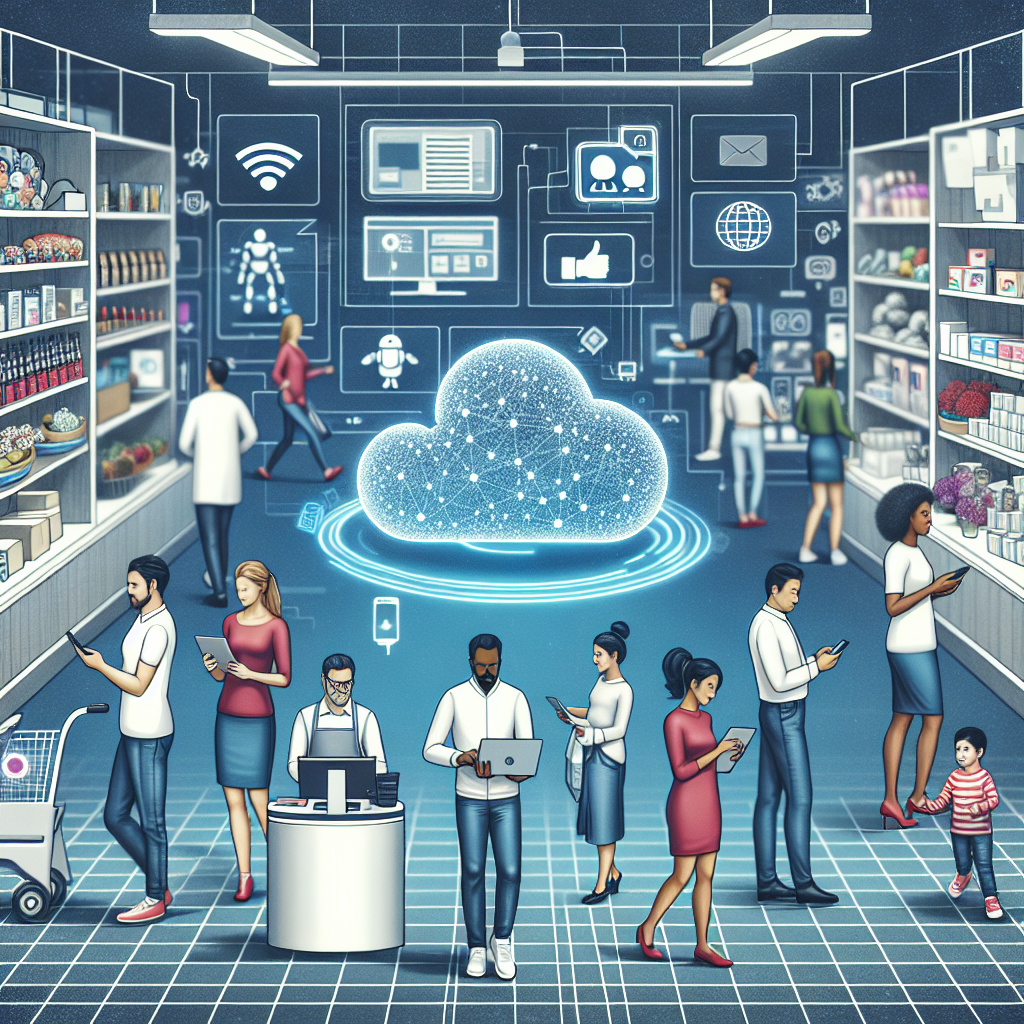Artificial Intelligence (AI) has been revolutionizing various industries, and the retail sector is no exception. With the help of AI cloud services, retailers can drive innovation, improve customer experience, and increase operational efficiency. In this article, we will explore how AI cloud services are transforming the retail sector and the benefits they bring to businesses.
AI cloud services refer to the use of AI technologies such as machine learning, natural language processing, and computer vision in cloud computing environments. By leveraging AI capabilities in the cloud, retailers can analyze large amounts of data, automate processes, and make data-driven decisions in real-time.
One of the key benefits of AI cloud services in the retail sector is the ability to provide personalized shopping experiences to customers. By analyzing customer data such as purchase history, preferences, and browsing behavior, retailers can offer personalized product recommendations, promotions, and discounts. This not only enhances customer satisfaction but also increases sales and customer loyalty.
AI cloud services also enable retailers to optimize their inventory management and supply chain operations. By using AI algorithms to forecast demand, retailers can ensure that they have the right products in stock at the right time. This helps reduce overstocking and stockouts, minimize inventory costs, and improve overall efficiency in the supply chain.
Furthermore, AI cloud services can help retailers enhance their marketing strategies and campaigns. By analyzing customer data and behavior, retailers can create targeted marketing campaigns that resonate with their target audience. AI-powered tools can also help retailers optimize their advertising spend, identify new customer segments, and track the effectiveness of their marketing efforts.
In addition to improving customer experience and operational efficiency, AI cloud services can also help retailers enhance their fraud detection and security measures. By using AI algorithms to analyze transactions and detect patterns of fraudulent activities, retailers can prevent fraud before it occurs and protect their customers’ sensitive information.
Overall, AI cloud services are driving innovation in the retail sector by enabling retailers to leverage AI technologies to improve customer experience, optimize operations, and boost sales. As more retailers adopt AI cloud services, we can expect to see even more advanced and personalized shopping experiences for customers, as well as increased efficiency and profitability for businesses.
FAQs:
Q: What are some examples of AI cloud services used in the retail sector?
A: Some examples of AI cloud services used in the retail sector include personalized product recommendations, demand forecasting, inventory optimization, targeted marketing campaigns, and fraud detection.
Q: How can retailers benefit from using AI cloud services?
A: Retailers can benefit from using AI cloud services by improving customer experience, optimizing operations, increasing sales, reducing costs, and enhancing security measures.
Q: Are AI cloud services expensive to implement?
A: The cost of implementing AI cloud services can vary depending on the size and complexity of the retailer’s operations. However, many cloud service providers offer flexible pricing options and scalable solutions to meet the needs of retailers of all sizes.
Q: How can retailers get started with AI cloud services?
A: Retailers can get started with AI cloud services by partnering with a reputable cloud service provider that offers AI capabilities. They can also work with AI consultants or experts to develop a customized AI strategy that aligns with their business goals and objectives.
In conclusion, AI cloud services are driving innovation in the retail sector by enabling retailers to leverage AI technologies to enhance customer experience, optimize operations, and boost sales. As more retailers adopt AI cloud services, we can expect to see even more personalized shopping experiences, efficient operations, and profitable businesses in the retail industry.

